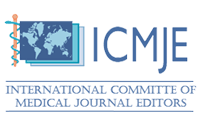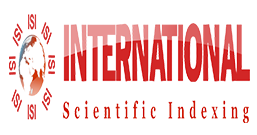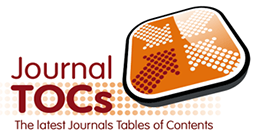Distinct NOD2 Polymorphism Status is Associated with Differential Outcome in Hematopoietic Stem Cell Transplantation: Results from a Meta-Analysis
Shuai Xing1,2, Lei Xing3, Jian-hua Liu2, Ping Zhou2*
Affiliation
- 1Department of Gastroenterology, Tongji Hospital, Tongji Medical College, Huazhong University of Science and Technology, Wuhan 430030, Hubei, China
- 2Institute of Organ Transplantation, Tongji Hospital, Tongji Medical College, Huazhong University of Science and Technology; Key Laboratory of Organ Transplantation, Ministry of Health, and Key Laboratory of Organ Transplantation, Ministry of Education, Wuhan 430030, China
- 3The Labor Union Committee, The General Hospital of China, Pingmei Shenma Medical Group, Pingdingshan, Henan 467000, China
Corresponding Author
Ping Zhou, Ph.D, MD, Institute of Organ Transplantation, Tongji Hospital, Tongji Medical College, Huazhong University of Science and Technology, Key Laboratory of Ministry of Health and Key Laboratory of Ministry of Education, Wuhan , No. 1095 of Jie Fang Avenue, Wuhan, Hubei Province, 430030, China, Tel: +027-83660255, Fax: 027-93662892; E-mail: pzhou@tjh.tjmu.edu.cn
Citation
Zhou, P., et al. Distinct NOD2 Polymorphism Status is associated with Differential Outcome in Hematopoietic Stem Cell Transplantation: A Meta-Analysis. (2017) Int J Hematol Ther 3(3): 1- 10.
Copy rights
© 2017 Zhou, P. This is an Open access article distributed under the terms of Creative Commons Attribution 4.0 International License
Keywords
Abstract
Objective: Susceptibility to Graft-Versus-Host Disease (GvHD) following Hematopoietic Stem Cell Transplantation (HSCT) has been linked to the NOD2 gene, but results have been so far conflicting among individual studies. The aim of this meta-analysis was to investigate NOD2 (nucleotide-binding oligomerisation domain containing 2) polymorphisms as possible susceptibility loci for GvHD as well as other life-threatening complications following HSCT.
Methods: Available studies addressing a possible contribution of NOD2 polymorphisms to GvHD and complications following HSCT were identified through database searches. We analyzed the HSCT outcomes and any of the NOD2 polymorphisms in either donor or recipient. Pooled relative risks (RRs) and their 95 % CI were calculated to assess the strength of correlation.
Results: NOD2 polymorphisms whether in recipient or donor, or recipient and donor-side transplant pairs, were significantly associated with severe GvHD (P = 0.004). However, only trends were observed in terms of the association between polymorphisms and decreasing mild GvHD, 1-year overall survival, disease-free survival, or increasing transplantation-related mortality and relapse (P > 0.05). NOD2 polymorphisms on the donor-side only were associated with higher risk of severe GvHD (P = 0.09), and the association was also observed in pairs where polymorphisms were carried by both the recipient and the donor (P = 0.002). Increased GvHD risk was not associated with polymorphisms in recipient-side only transplant pairs. Furthermore, the association was not attributable to any specific NOD2 genotype.
Conclusions: NOD2 polymorphism confers the more negative outcomes following HSCT. Donor and both-side mutation in transplants could increase the risk of severe GvHD. NOD2 genotyping may therefore be of clinical value.












